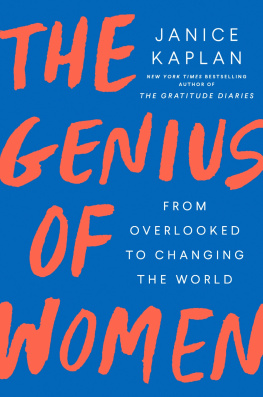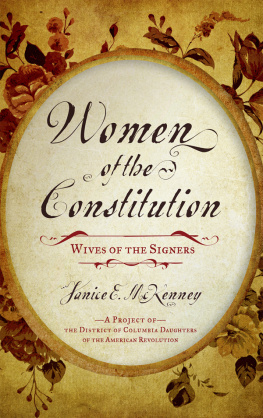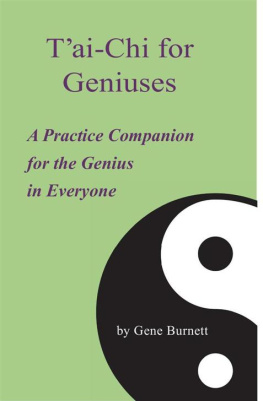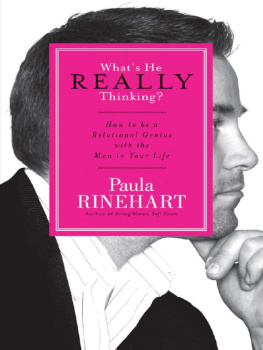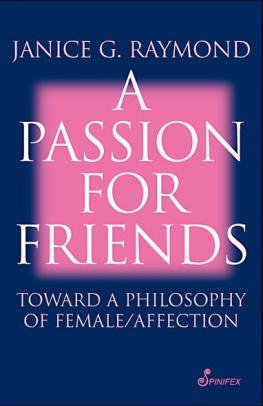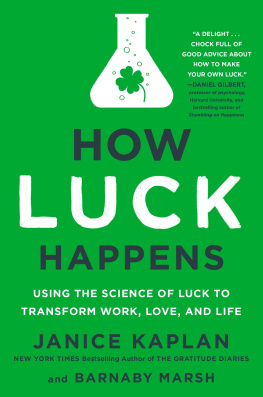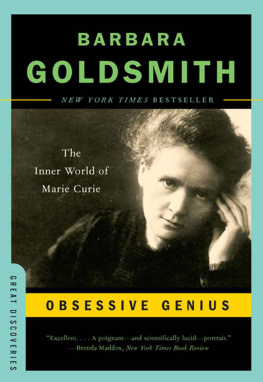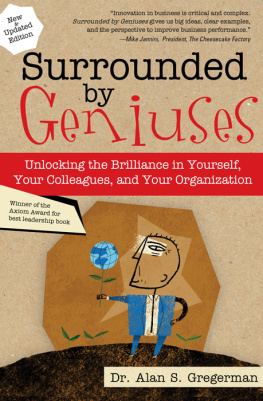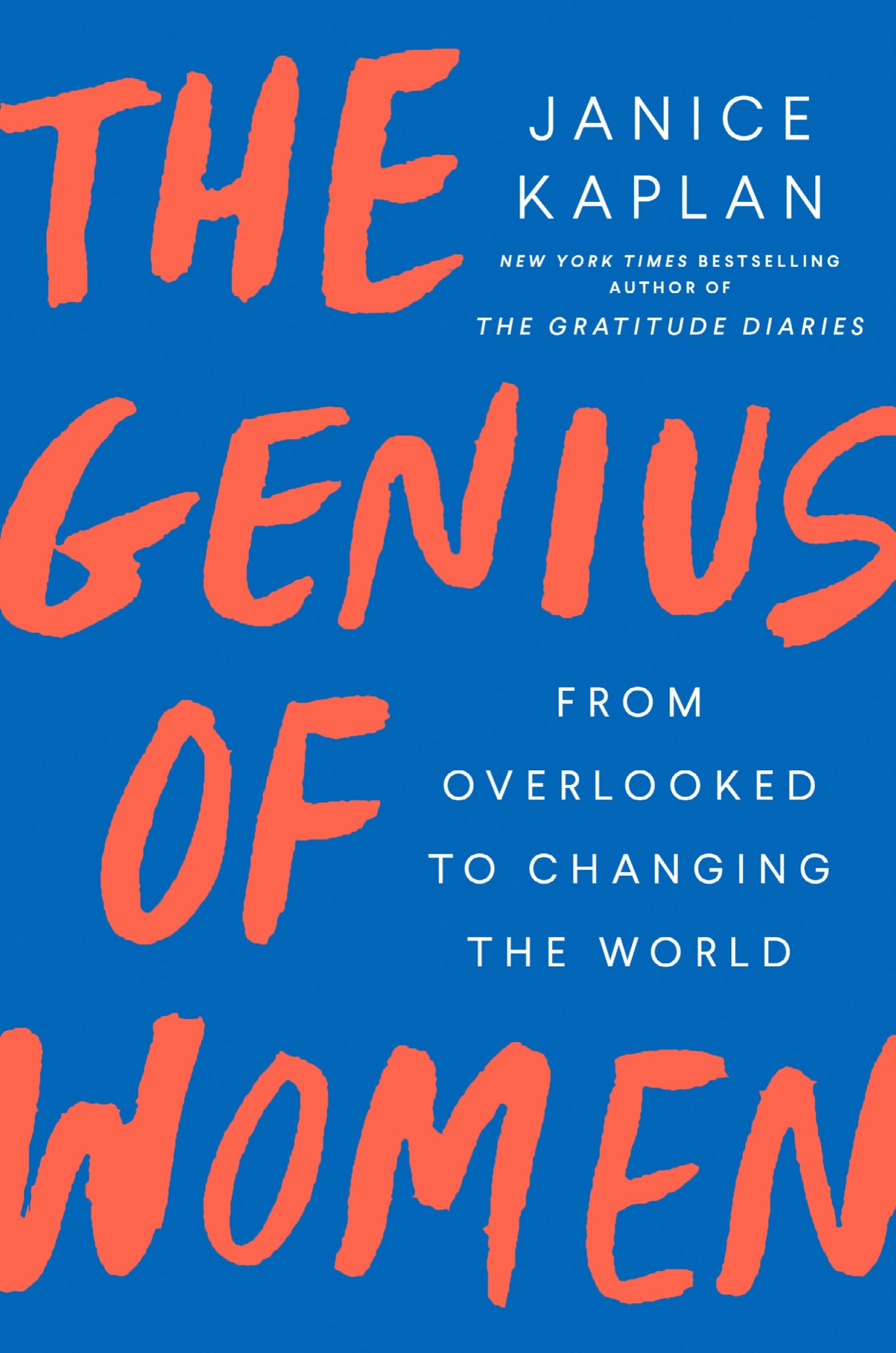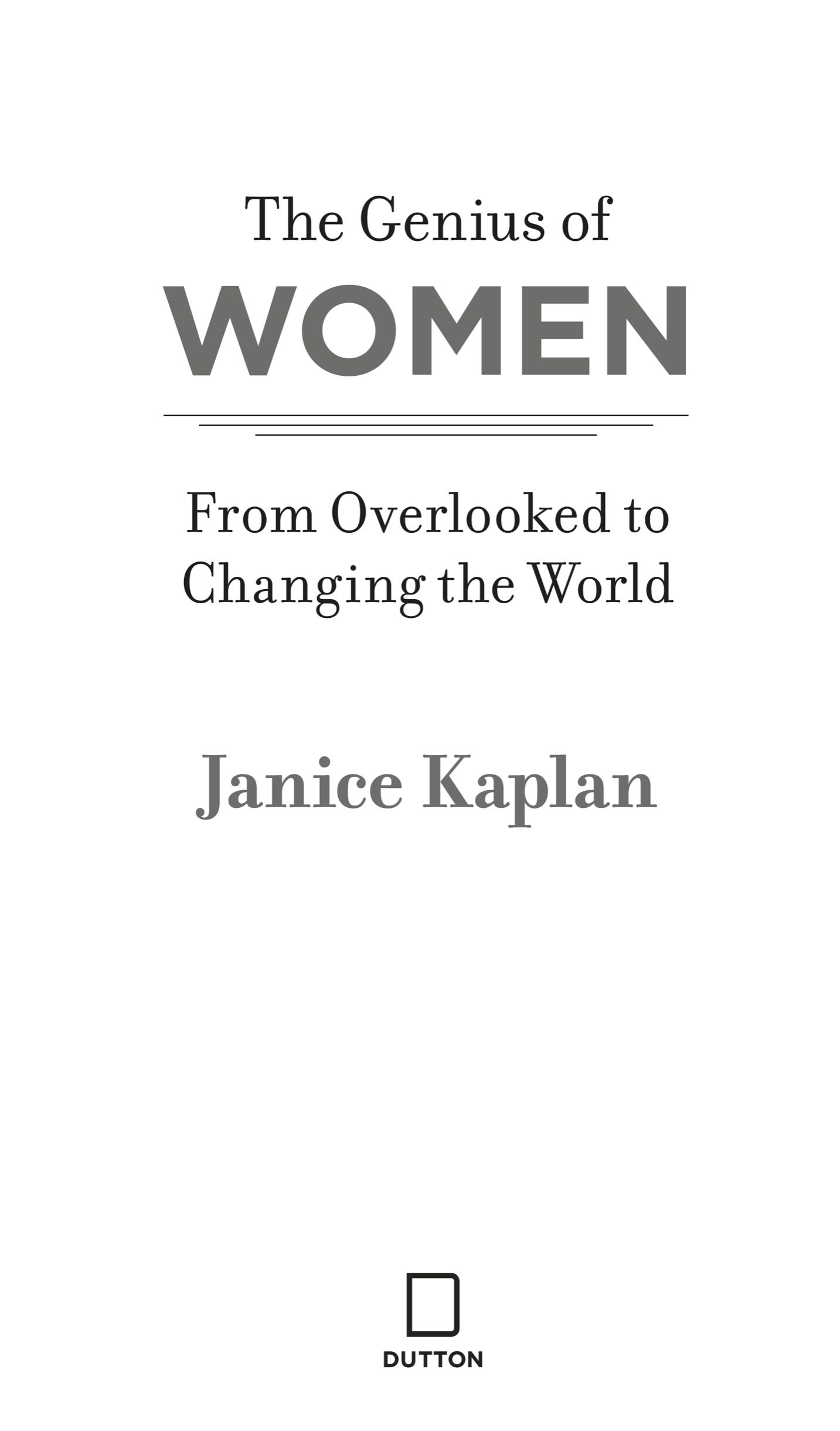Penguin supports copyright. Copyright fuels creativity, encourages diverse voices, promotes free speech, and creates a vibrant culture. Thank you for buying an authorized edition of this book and for complying with copyright laws by not reproducing, scanning, or distributing any part of it in any form without permission. You are supporting writers and allowing Penguin to continue to publish books for every reader.
DUTTON and the D colophon are registered trademarks of Penguin Random House LLC.
has been applied for.
While the author has made every effort to provide accurate telephone numbers, internet addresses, and other contact information at the time of publication, neither the publisher nor the author assumes any responsibility for errors or for changes that occur after publication. Further, the publisher does not have any control over and does not assume any responsibility for author or third-party websites or their content.
To Pauline and Annie and Matt and Zach.
Your genius minds and generous hearts inspire me every day.
Preface
A cadre of academicsall menput together a canon of books some years ago that they considered essential reading. These Great Books came to define what it means to be an educated person, and schools including Columbia University and the University of Chicago used them as the basis for a core curriculum.
A hundred or more books made the list. Not one of them was written by a woman.
The men behind the Great Books sanctimoniously claimed that they chose works that contained great ideas, and they didnt care who wrote them. You dont need a PhD in psychology to know that they were fooling themselves. Our decisions about what is great and worthy and valuable are based at least in part on social expectations. We appraise valuewhether in intellectual ideas, pocketbooks, or real estatewithin a socially accepted context. For the male academics who made the list, and for so many before and since, the expectation was that men were the geniuses worth studying.
My friend Michael Berland, the well-known pollster and strategist, conducted a survey just a few years ago to understand peoples attitudes toward genius. Mike has been doing polls for a long time, and he is better than almost anyone at predicting results and then knowing how to use the findings to move forward. But the genius poll floored him. In one question, he asked who was most likely to be a geniusand 90 percent of Americans said that geniuses tended to be men. When asked to name a female genius, almost the only name anyone could come up with was Marie Curie.
How did we get to the point of ignoring, undermining, and overlooking the extraordinary talents of women? In our current era of assumedly aroused consciousness to gender issues, why do both men and women still believe that mens contributions to society are the ones that really count?
In interviewing dozens of mathematicians, physicists, artists, writers, philosophers, and Nobel Prize winners for this book, I have discovered that the real issue separating men and women isnt talent or achievement or natural brilliance or hard work. Its being in the position to set the rules. Men have had that power, and women have not. Men have been making the decisions about what is good and what mattersand their biases become the status quo, the accepted ethos, for all.
Recognizing genius does not have to be a zero-sum gameand yet it often feels that way. There are only so many Nobel Prizes and tenured jobs at Harvard. There is only so much space for great works in museums and only so many authors whose works can be listed on a core curriculum. You would think that a more aroused awareness in recent years would turn a list like Great Books into a dated relic, but any change gets met with angry resistance. When Columbia University started revising its required reading list to include women writers like Sappho, Virginia Woolf, Toni Morrison, and Jane Austen, even some of the most liberal male professors were outraged. Sure, Virginia Woolf is worth reading and maybe she even redefined the novel more dramatically than anyone else of her time. But which man gets dropped to make way for her?
Men who feel threatened that their work and their heroes may be replaced stop being open to womens achievements. They close ranks and redefine genius. Let me put it bluntly. If you are in power and define a genius as a person who breaks new ground, affects future generations, and has a penis, then you have pretty much given the game away. You can claim that you believe in equality and judge only by performancebut you have rigged the system.
Women have to be aware of how the rules are set. The definitions are never as stark as I just describedunless you read between the lines. When Donna Strickland won the 2018 Nobel Prize in physics, she was celebrated for her groundbreaking research developing a new method of generating laser beams. She had brilliance, originality, and great accomplishmentswhat she didnt have was a page on Wikipedia. An entry about her had been submitted just a few months earlier, but it had been rejected by the mostly white male gatekeepers.
Wikipedia is an impressive undertaking, and I dont mean to point fingers at its failings. Katherine Maher, executive director of the nonprofit that oversees Wikipedia, was slightly embarrassed when the Strickland story came out, but she explained that Wikipedia is simply a reflection of the worlds biases, not the cause of them. The massive online encyclopedia is created by a troop of volunteers who represent the values of the society. We can (and will) talk about why women who have different talents than men miss out on the worlds applause. But the missing page revealed an even more flagrant problem. Women who have talents the same as or greater than those of their male colleagues (she won the Nobel Prize, for heavens sakes!) still get ignored. Wikipedia guidelines dont specifically define geniuses in physics as requiring a Y chromosome. But by denying Stricklands entry, they basically did.
You dont have to be a genius to have a Wikipedia pageyou just have to reach the level of notable, which isnt really a very high standard. But only about 15 percent of the biographies on Wikipedia as of 2014 were about women. By the time of the Strickland oversight, the number was close to 18 percent. A measly 3 percent increase may not sound like much, but Maher said that it represented seventy-two new articles a day, every single day, for the past three and a half years. All that and they still hadnt managed to include the woman who would receive the highest honor in her field.
Do you see what Im trying to say here? You can do great work. You can be a genius in your field. But the forces of established power can still rule against you. When you are a woman and 85 percent (give or take 3 percent) of the people whom society considers notable are men, you have a tough road to travel.

